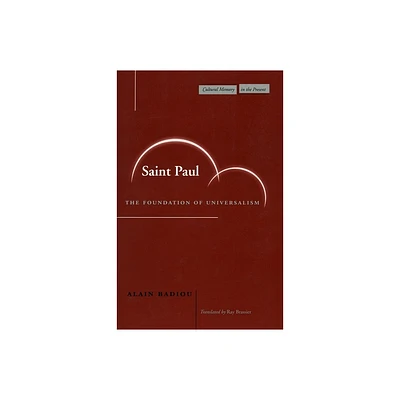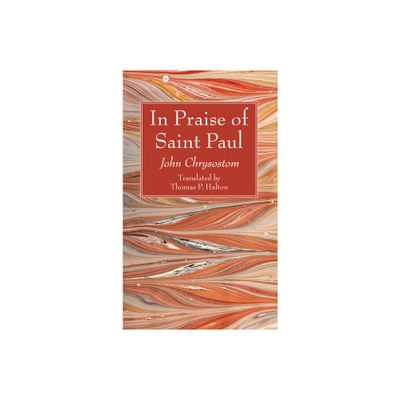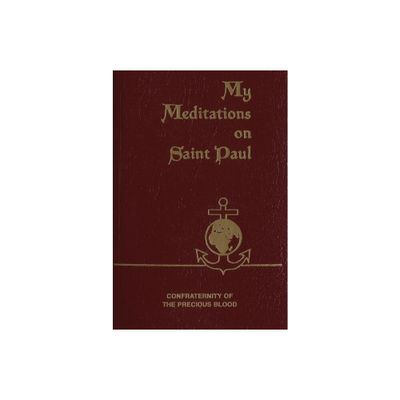Home
Saint Paul and Contemporary European Philosophy: the Outcast Spirit
Loading Inventory...
Barnes and Noble
Saint Paul and Contemporary European Philosophy: the Outcast Spirit
Current price: $110.00


Barnes and Noble
Saint Paul and Contemporary European Philosophy: the Outcast Spirit
Current price: $110.00
Loading Inventory...
Size: Hardcover
*Product Information may vary - to confirm product availability, pricing, and additional information please contact Barnes and Noble
The re-examination of Saint Paul’s letters in contemporary European philosophy is one of the most important developments at the crossroads of philosophy and theology today.
In discussion with a range of authors contributing to this movement, including Heidegger, Badiou, Agamben, and Taubes, Gert-Jan van der Heiden offers a new and systematic account of the philosophical potential of these letters. He does so by uncovering a dialectic of exception, which revolves around the Pauline notions of the outcast and the spirit.
Against a general tendency to understand the significance of Paul in politico-theological terms alone, van der Heiden focuses on the ontological potential of Saint Paul’s letters by elucidating what they imply for our thinking about (non-)beings, world, event, time, exception and spirit. Ultimately, he shows how this dialectic implies a new understanding of being and thinking and gives rise to a new art of living, both ethically and politically.
In discussion with a range of authors contributing to this movement, including Heidegger, Badiou, Agamben, and Taubes, Gert-Jan van der Heiden offers a new and systematic account of the philosophical potential of these letters. He does so by uncovering a dialectic of exception, which revolves around the Pauline notions of the outcast and the spirit.
Against a general tendency to understand the significance of Paul in politico-theological terms alone, van der Heiden focuses on the ontological potential of Saint Paul’s letters by elucidating what they imply for our thinking about (non-)beings, world, event, time, exception and spirit. Ultimately, he shows how this dialectic implies a new understanding of being and thinking and gives rise to a new art of living, both ethically and politically.




![Pictures of Saint Paul Street [LP]](https://prodimage.images-bn.com/pimages/0630125983683_p0_v2_s600x595.jpg)













